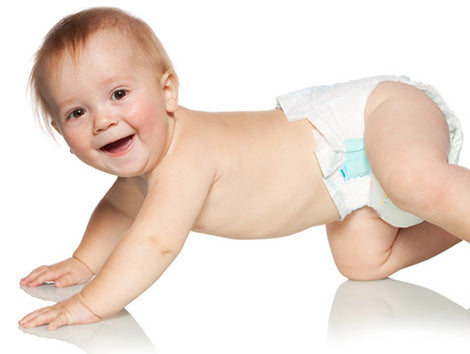
Bringing your baby home…. now what?
Congratulations on the arrival of your beautiful baby! This information is to help with your transition to being a new parent, as a resource for some of the questions that may arise now you have your baby in your arms.
Routine mum and baby checks
Your local maternal child health centre will see you and your baby regularly in the first 8 weeks, to weigh your baby and check in with how you are all going.
You should see your GP for a routine 6 week check-up for your baby (and for yourself if you don’t have a private obstetrician). There are GPs available at Number 1 Women’s Health for these check-ups if you don’t have a GP you wish to see. This is an opportunity for your baby to be checked from head to toe by a doctor, to have a chat about how you are all settling in, weigh your baby and ensure there are no major issues or concerns.
If you don’t have a private obstetrician and have any concerns in the postnatal period, there are GPs available at Number 1 Women’s Health to review and assist you.
If you are breastfeeding, we would encourage an early review at around 2 weeks postpartum with a lactation consultant if there are any concerns at all with breastfeeding, including sore nipples/breasts, concerns about milk supply, issues with baby’s weight gain or difficulties with positioning of baby when feeding. A GP lactation consultant is available at Number 1 Women’s Health if needed.
Vaccinations for baby
The routine government-funded vaccinations for your baby are at 6 weeks of age, 4 months, 6 months, 12 months, 18 months and 4 years of age.
See https://www.betterhealth.vic.gov.au/health/healthyliving/immunisation-childhood for more information regarding routine immunisations.
There are also other vaccines to consider for your baby, including vaccine against meningococcal B and meningococcal ACWY strains. These are separate to the routine vaccine schedule, and can be given from 8 weeks of age. See https://mvec.mcri.edu.au/references/meningococcal-disease-and-vaccines/ for further information, or speak to your GP.
Looking after yourself
Feeding and caring for your baby is exhausting! Engage as much help from family and friends as you can and get extra rest whenever you can take it.
It is important to unhook your own self-care from your baby’s sleep – this is a good habit to get into from early on. Again, engage your “village” and try to find moments for self-care in your day and week.
If you feel you are not coping, please see your GP for support.
The unsettled baby
All babies will cry sometimes. This crying generally peaks around 6 weeks, and tapers off by 12 weeks, usually resolving by around 16 weeks of age. Responding to your baby’s cues has been shown to reduce crying durations. Babies enjoy being cuddled and being close to their caregivers, which also helps reduce their crying/keeps them dialled down. You can’t “spoil” your baby with too many cuddles or holding them too much. Baby carriers can be a great way to keep baby close but allow you to have your hands free. Remember babies have sensory hunger, needing different sensory nourishment to keep them settled. Initially a lot of this sensory hunger will be met with cuddles and breastfeeding, but as baby wakes up, they will need other sensory nourishment. They will love being out of the house with you, hearing your voice and seeing the world around them. Bath time is another wonderful sensory experience for babies that can help keep them calm and dialled down.
Baby sleep
There is a large range of “normal” when it comes to the duration that babies will sleep in a 24-hour period – every baby is different. Sleep is biologically driven; it is not something you need to “teach” your baby. Similarly, you do not need to teach your baby to “self-settle” – this is something they will develop with time.
Trust that your baby will take the sleep they need; your role is to keep baby calm to allow them to do this. A consistent wake up time for your baby in the morning can help set their circadian clock, which can be all out of sync, particularly in newborns. Also ensure your baby gets plenty of natural light during the day. Day naps should be in a light room with the noise of the surrounds. We want baby to learn “daytime is for living; night-time is for sleeping!”. So, get on with your day doing things you want to do, take baby with you and trust baby will take the sleep they need.
Ensure you have a safe sleep space for your baby. If you choose to co-sleep with your baby, ensure it is done safely. See Basis website for more information regarding sleep - https://www.basisonline.org.uk/basis-information-sheets/
If you are concerned about your baby’s sleep, or that your baby is particularly unsettled, please book an appointment with one of our GPs at Number 1 Women’s Health.
Feeding your baby
Breastmilk or infant formula is the only food your baby needs in the first months of life. Breastfeeding can have its challenges but there is help available if you need it. There is a GP Lactation Consultant at Number 1 Women’s Health if you require help with breastfeeding, or Australian Breastfeeding Association is a great resource also.
The current recommendations are to introduce solids at around 6 months of age, and not before 4 months, when your baby is developmentally ready. Please see https://raisingchildren.net.au/babies/breastfeeding-bottle-feeding-solids/solids-drinks/introducing-solids
This is a useful website regarding introduction of solids and prevention of food allergies: https://preventallergies.org.au/
Other useful websites:
- Raising Children network - https://raisingchildren.net.au
- Royal Children’s Hospital fact sheets - https://www.rch.org.au/kidsinfo/fact_sheets/
- Possums & Co – “The Possums Programs” - https://possumsonline.com
- Australian Breastfeeding Association - https://www.breastfeeding.asn.au
- If using a bottle to feed (paced bottled feeding) - https://possumsonline.com/video/about-paced-bottle-feeding-renee-keogh
- Mental health strategies for parents - https://possumsonline.com/act-mental-health-strategies-parents-babies
